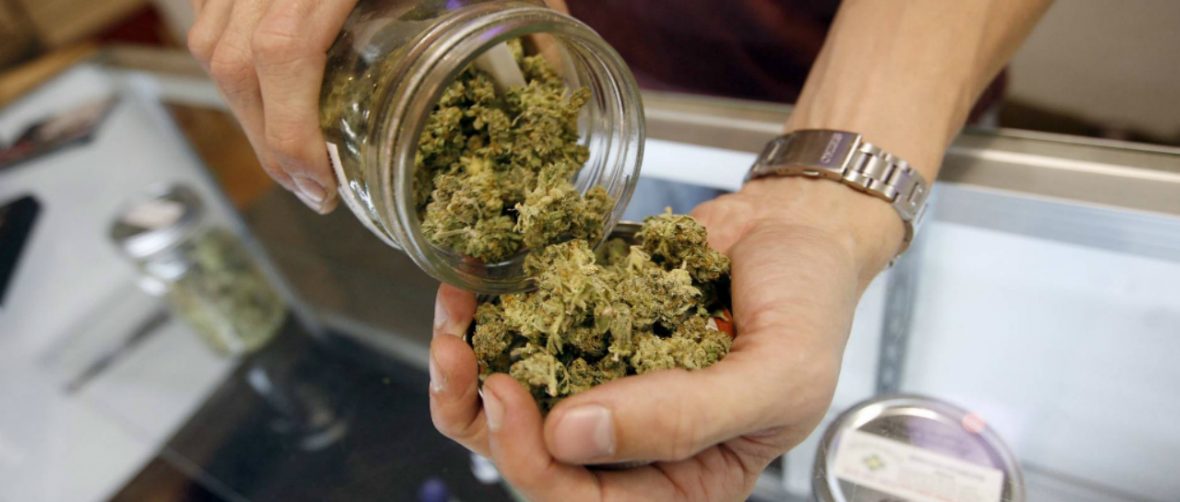Legalizing Adult-Use Cannabis
Overview
Starting Jan. 1, 2020, Illinois residents 21 and older will be able to legally purchase and possess cannabis.
• Illinois residents would be allowed to possess any combination of the following:
o 30 grams of cannabis flower
o 5 grams of cannabis concentrate
o 500 milligrams of THC contained in a cannabis-infused product
Neither residents nor non-residents may transport any cannabis product over state lines.
Revenue allocation
Tax revenue would first be allocated for agency administrative needs and costs incurred from the expungement process.
After the above two have been paid, the remaining amount will be broken out as follows:
• 2% for public education and safety campaigns
• 8% for law enforcement funds for prevention and training to be distributed through the Local Government Distributive Fund (LGDF) formula
• 25% for Recover, Reinvest, and Renew (R3) Program
• 20% for programs that address preventative substance abuse programs and mental health services
• 10% for the bill backlog
• 35% to or the remaining amount the General Revenue Fund (GRF)
Expungement
• Convictions dealing with amounts of cannabis up to 30 grams will be dealt with through the governor’s clemency process, which does not require individuals to initiate the process.
• For amounts of 30-500 grams, the state’s attorney or an individual can petition the court to vacate the conviction.
Home grow
• Medical patients will be permitted to possess up to five cannabis plants more than 5 inches tall under certain conditions.
• The plants must be kept on their residential property in a closed and locked space away from public view that is also reasonably inaccessible by a person under 21 years of age.
• Medical patients may purchase cannabis seeds from a dispensary but not any live cannabis plant material.
Local control
Local towns and municipalities will retain significant power to decide how cannabis businesses may or may not fit into their communities, including:
• Opting out completely
• Enacting reasonable zoning ordinances that govern the time, place, manner and number of cannabis establishment operations
• Enacting ordinances to allow for public consumption
The legislation also provides for a process by which precincts in cities with a population of over 500,000 may enact ordinances by petition to limit home grow or cannabis business establishments.
Protecting employers and landlords
• Employers may maintain a zero drug tolerance workplace under this proposal.
• Landlords would not be required to permit tenants to possess or consume cannabis products on their property.
• No person or establishment is required to allow a guest, client, lessee, customer or visitor to use cannabis on their property.
Promoting equity
This legislation seeks to help resolve some of the negative effects of nearly 80 years of cannabis prohibition on minority communities.
• It creates a Social Equity Program that will help to promote minority involvement in the cannabis industry, giving participants access to grants and loans in order to deter some of the upfront costs of participating in the market.
• The proposal would establish a new grant program, the Recover, Reinvest and Renew Program (R3), a performance incentive funding program for high-need, underserved communities throughout the state.
o The R3 program will provide planning and implementation of grants as well as technical assistance to collaborative groups and civil legal aids to people in R3 areas.
• The legislation commissions a disparity and availability study to identify discrimination in the cannabis industry. The departments responsible for issuing licenses will be required to take the conclusions of the study into consideration when issuing further licenses.
Community College Vocational Pilot Program
• The Department of Agriculture will work with the Community College board to create eight pilot programs in the state, spread among geographical regions. Of the eight, five shall be awarded to schools that have a student population that is more than 50% low-income.
• The courses will allow participating students to work with, study and grow live cannabis plants to prepare them for a career in the legal cannabis industry.

